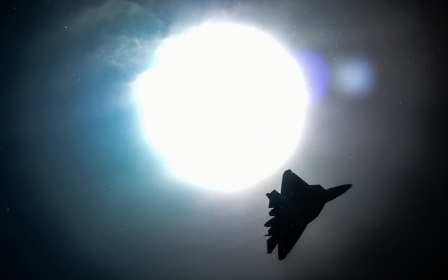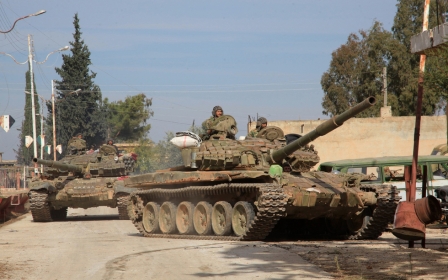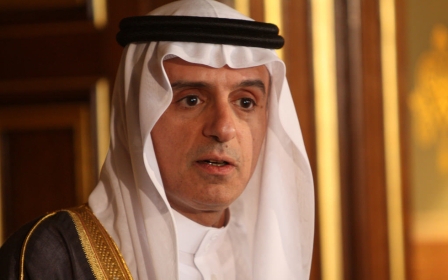Saudi to host Syrian opposition armed and political groups next month

Saudi Arabia will host a meeting next month that will aim to see certain Syrian armed factions join the political opposition to build a common platform ahead of peace talks, a UN envoy said on Friday.
Staffan de Mistura, the UN's Syria envoy, said in an interview with the al-Hayat newspaper that Riyadh was "very well-placed" to bring together not only political actors but military groups fighting the forces of President Bashar al-Assad.
"They are the ones who are dying, they are the ones who are fighting," De Mistura said of the armed groups, without naming them.
"Saudi Arabia is very well placed of being able to have a lot of them in Riyadh, and they volunteered to do so."
"They are going to deal - either directly or through us in different rooms - with a very firm, highly disciplined government position."
Although no set date has been announced, the meeting is thought to be taking place in Riyadh around 15 December.
Badr Jammous, a member of Syria’s exiled political opposition, confirmed to Reuters the Turkey-based Syrian National Coalition’s involvement.
“There are efforts towards a meeting in Riyadh between most parts of the opposition,” Jammous said. “We will participate, and we will support the conference.”
Abdullah al-Mouallimi, Saudi Arabia’s ambassador to the UN, told the Saudi-owned al-Arabiya channel that a unified opposition is the goal of the meeting.
“The Kingdom of Saudi Arabia is keen to gather the entire Syrian opposition and help them to [present] one voice and one unified position,” al-Mouallimi said.
"They should have a common platform," agreed De Mistura.
A unified front will bolster the opposition’s position when it enters talks in January with the Syrian government to end the nearly five-year war that has left at least 250,000 dead.
Spurred on by the 13 November attacks in Paris, US Secretary of State John Kerry and his Russian counterpart, Sergei Lavrov, have said the talks in Vienna will aim to achieve elections and a new constitution within 18 months, which De Mistura called "very challenging but possible".
This will be the first time that any Syrian side will be included in the Vienna talks. The talks, which first took place on 31 October and again on 15 November, have brought together 17 countries, including Russia, the United States, Saudi Arabia and Iran, in a bid to reach a settlement.
The third set of talks is expected to convene on 1 January 2016, this time with the participation of the Syrian opposition and government. Previous UN-backed peace talks in Geneva - held in 2014 and 2015 - ended without any concrete achievements with large parts of the opposition boycotting the talks earlier this year.
Once an opposition delegation is formed, a ceasefire would go into effect across Syria, except in the territory controlled by the Islamic State group, said the UN. The UN Security Council is drafting a resolution that will provide for ceasefire monitors.
Kerry told reporters on Friday that despite support from international players, the negotiations must be undertaken by Syrians themselves.
“The United Nations is prepared to convene the parties in Geneva and begin the process of creating this transitional process for Syria itself,” he said, “but it’s Syrians who have to resolve and decide the future of Syria itself.”
De Mistura stressed that seizing the momentum for peace was crucial and that the worst-case scenario would be for the Vienna talks to break down.
"My greatest fear is that the countries that are involved and have an influence and finally are sitting around the table decide to break the table and go back to their old habit, which means another five years of the same conflict, and there will be no more Syria," he said.
"That is the biggest fear that I have."
This is not the first time that Saudi Arabia has announced it will host a meeting of Syrian opposition groups. Back in May, a similar meeting was announced but never took place.
Stay informed with MEE's newsletters
Sign up to get the latest alerts, insights and analysis, starting with Turkey Unpacked
Middle East Eye delivers independent and unrivalled coverage and analysis of the Middle East, North Africa and beyond. To learn more about republishing this content and the associated fees, please fill out this form. More about MEE can be found here.




